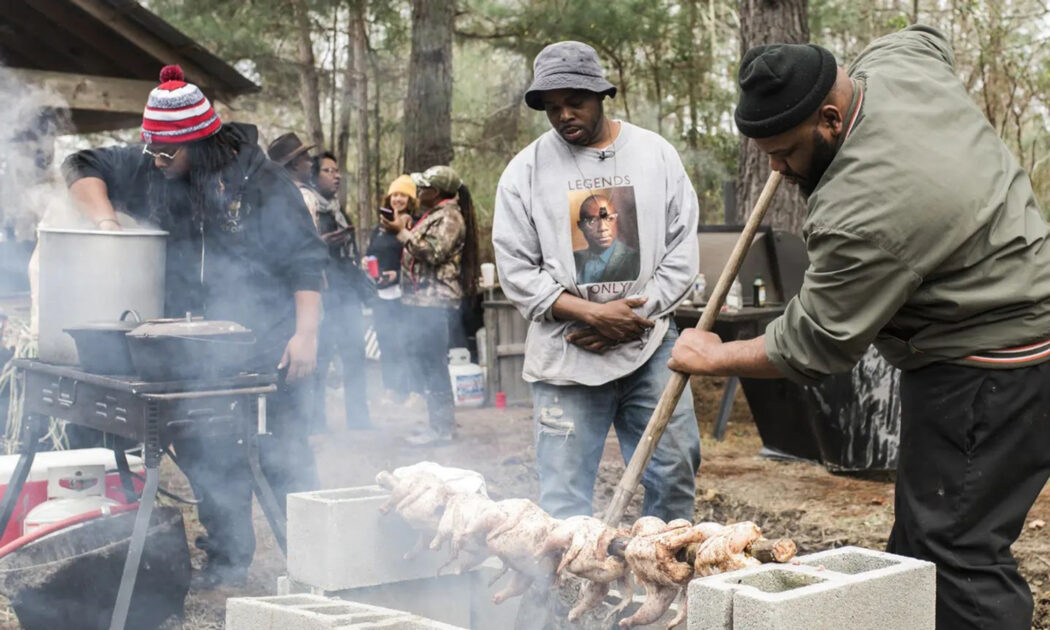The culture of Southern cuisine is something hard associated with the roots of the foundation of this country and the modern view of “the South.” But what some fail to glean is that the base of what is considered Southern cuisine is much more an amalgam of tradition and technique from various cultures far predating the founding of the United States that has had nuance added throughout the decades. One such culture is the Gullah Geechee, from which Charleston-based chef BJ Dennis descends. In his cuisine, you’ll find a style that is Southern but with a faithful Gullah base with inspiration drawn from African cultures all around the world to create unique takes on classic Southern dishes.
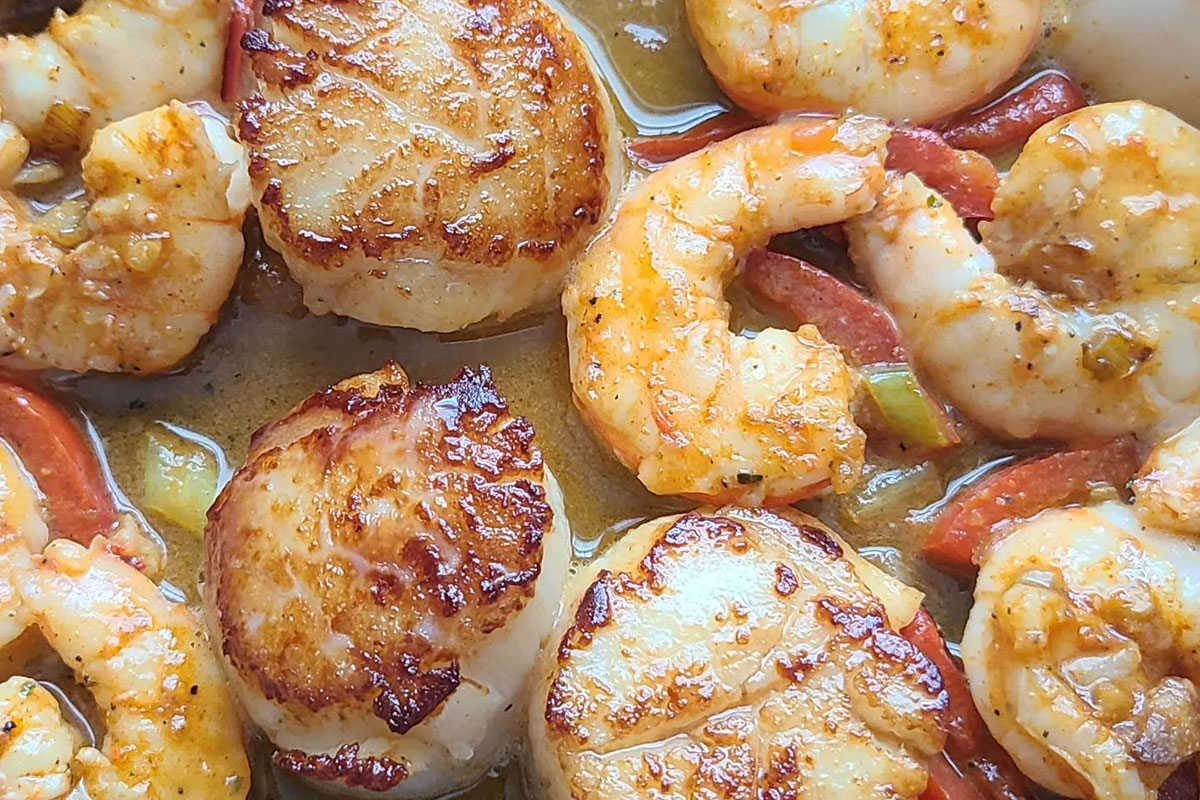
How does the influence of West African tradition permeate through southern cuisine?
BJ Dennis: You see it in ingredients such as okra, benne seed (sesame), peas, the use of leafy greens, watermelon and such. Dishes like Gumbo, red rice, okra with tomatoes and jambalaya just to name a few.
Can you explain the history of The Gullah Geechee community in South Carolina?
BD: They are descendants of enslaved people from mainly West and Central Africa who came from all over that region. Mainly those from the rice-growing regions. We were able to hold on to a lot of our traditions and language from Africa because of our isolation during certain times of the year during enslavement.
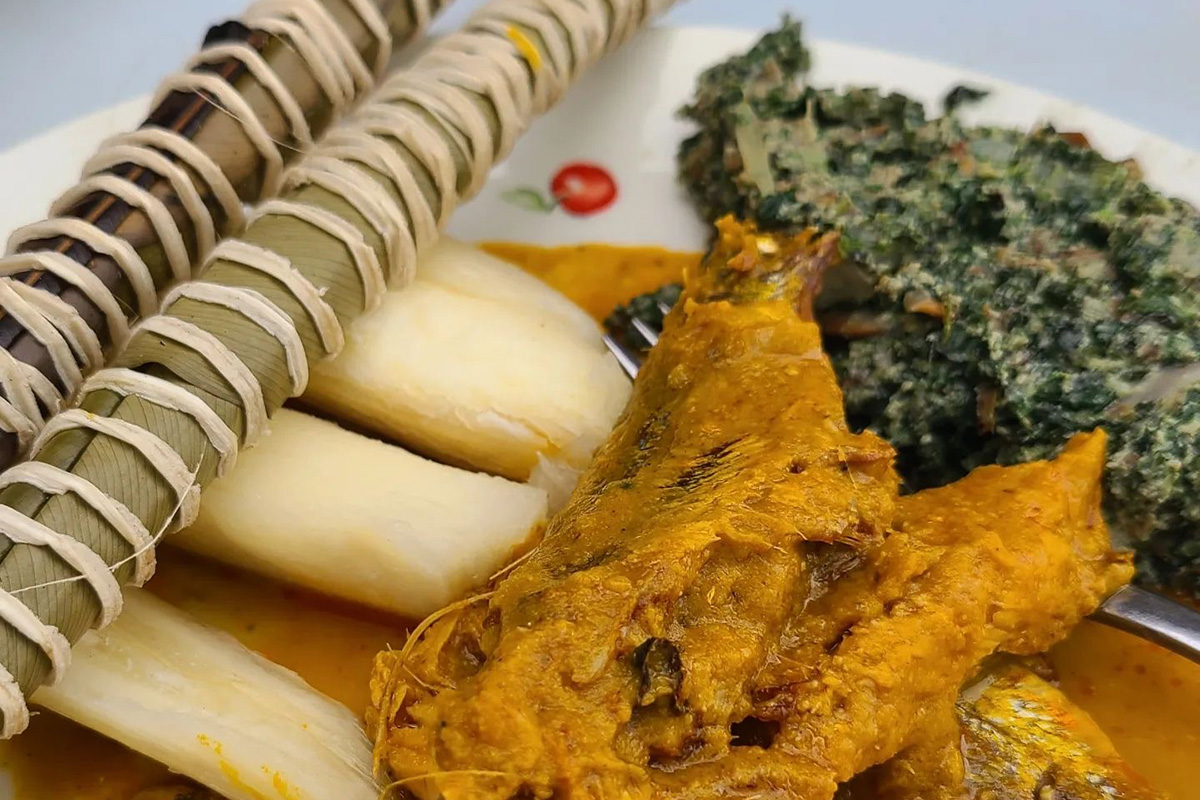
Where do you draw inspiration from when coming up with new dishes? Do you let the ingredients talk?
BD: I draw inspiration from many sources. From old cookbooks to the foodways of the African diaspora and conversations with people in my community. Especially the elders. But I am a culinarian who loves all cuisines and cultures. But my main focus is the food of the African diaspora.
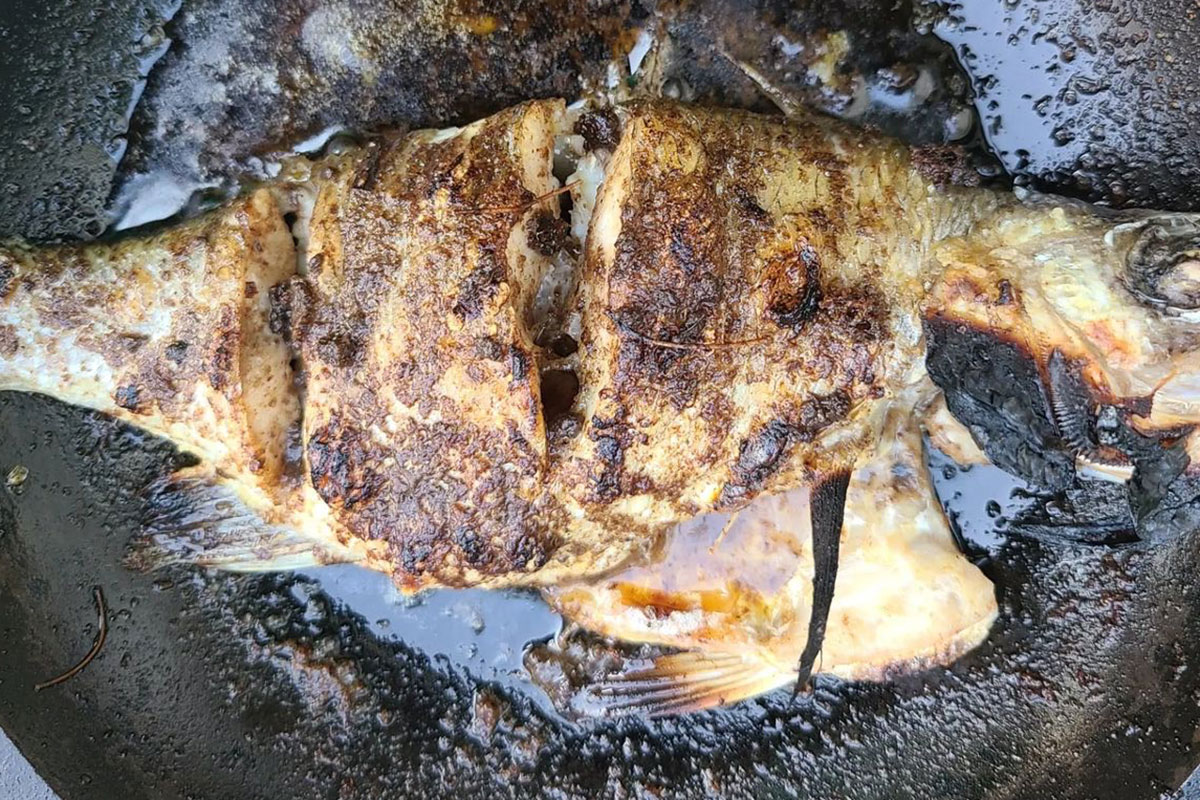
How would you describe your particular style of cooking?
BD: From the land to the sea. Straightforward, like I’m chasing the flavors of those before me.
You’re presenting someone with a dish who you care deeply for and haven’t seen in a while, what are you making?
BD: I would make a pot of okra soup.
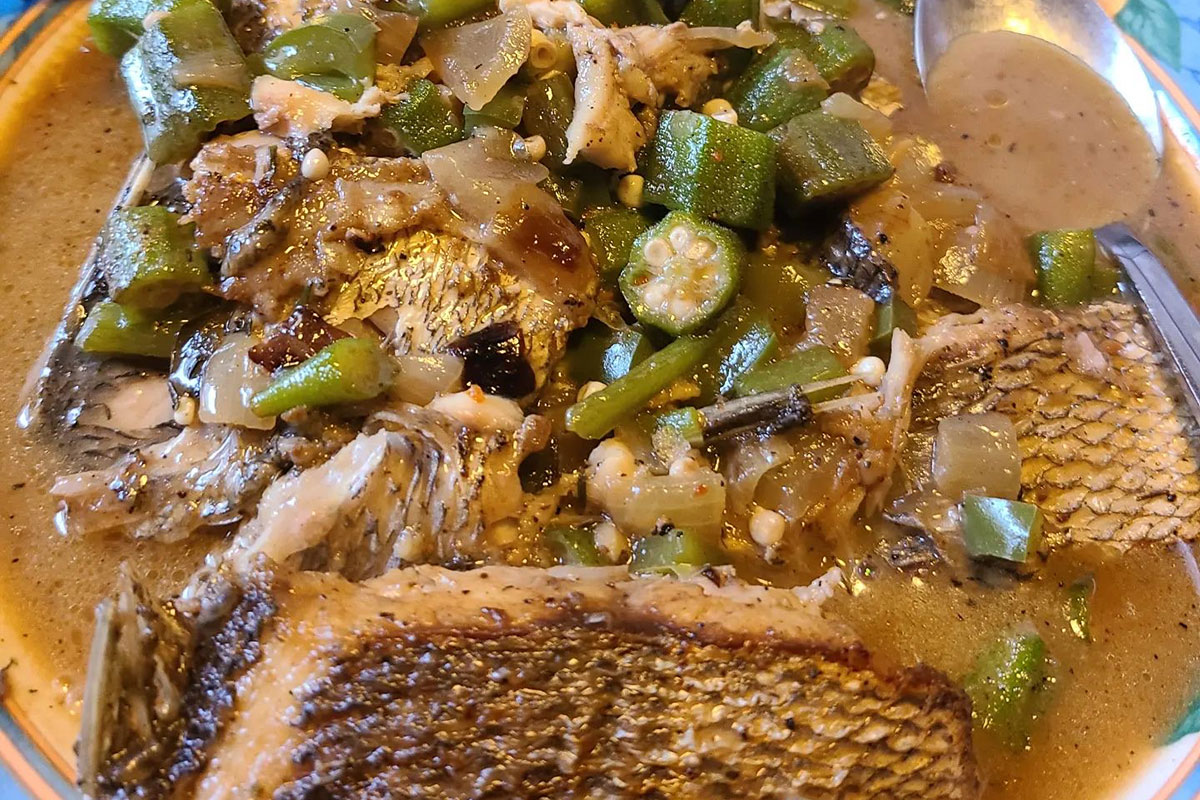
An ingredient that does not get the recognition it deserves or has a bad reputation?
Okra for sure.
You have three vegetables to use in your dishes for the rest of your life, what three are you picking?
Okra, any leafy greens and broccoli.
What is the feeling you want to convey to people when they dine on your food?
A taste of culture and history.
One anecdote from cooking for Anthony Bourdain?
He was a brilliant man who understood people of all backgrounds.

